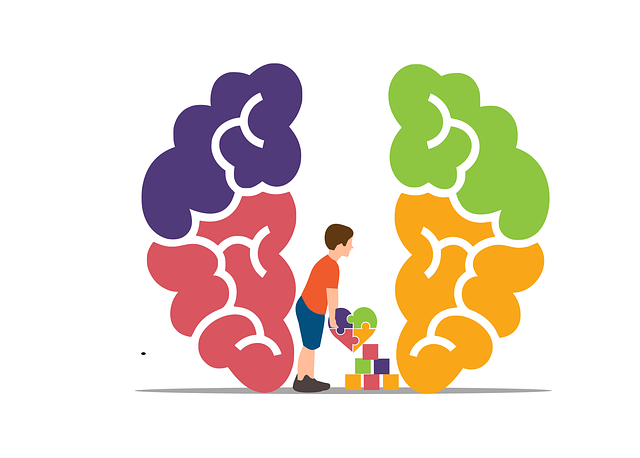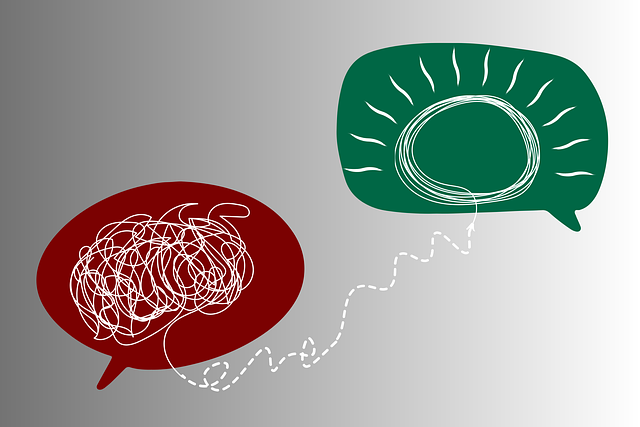Evaluating Louisville Polyamorous and Open Relationships Therapy (LPORT) involves combining quantitative surveys with qualitative interviews and focus groups. Quantitative methods track changes in anxiety or depression symptoms, while qualitative data explores participants' experiences, self-esteem improvements, emotional intelligence growth, and risk management planning. Integrating these data types offers a holistic view of the program's impact, guiding adaptations for better mental wellness outcomes within Louisville's polyamorous community. Client feedback and testimonials are crucial for identifying effective strategies and refining therapeutic approaches based on diverse client needs.
In Louisville, the mental wellness landscape is evolving to cater to the unique needs of its polyamorous and open relationships communities. This article delves into the critical evaluation methods employed by therapists and practitioners to measure the impact of specialized programs. We explore quantitative tools like surveys and questionnaires, alongside qualitative feedback sessions, to assess program effectiveness. Furthermore, we discuss strategies for long-term tracking, emphasizing the importance of continuous improvement and community engagement in shaping Louisville’s polyamorous and open relationships therapy landscape.
- Assessing Program Impact: Quantitative and Qualitative Methods
- – Discussion on surveys, questionnaires, and statistical analysis to measure the effectiveness of mental wellness programs in Louisville's polyamorous community.
- Client Feedback and Testimonials: A Vital Component
Assessing Program Impact: Quantitative and Qualitative Methods

Evaluating the impact of a mental wellness program is a multifaceted process that combines both quantitative and qualitative methods. Quantitative assessments involve numerical data analysis, such as surveys, to measure changes in symptoms or overall well-being before and after the program. For instance, tracking scores on standardized measures of anxiety or depression can provide concrete evidence of a program’s effectiveness at Louisville Polyamorous and Open Relationships Therapy.
Qualitative methods, on the other hand, delve into participants’ experiences and perceptions through open-ended interviews or focus groups. This approach captures nuanced insights into how individuals perceive their self-esteem improvement, emotional intelligence growth, and changes in risk management planning for mental health professionals. By integrating both quantitative and qualitative data, mental wellness program evaluators can gain a comprehensive understanding of the program’s overall impact, identifying areas of success as well as aspects that need improvement.
– Discussion on surveys, questionnaires, and statistical analysis to measure the effectiveness of mental wellness programs in Louisville's polyamorous community.

Measures of success are integral to evaluating the impact and effectiveness of mental wellness programs, especially within niche communities like Louisville’s polyamorous scene. Surveys and questionnaires are powerful tools for gathering firsthand accounts from participants about their experiences with Open Relationships Therapy. These assessments can capture qualitative data on individual journeys towards emotional healing processes, allowing for an understanding of the program’s overall reception and perceived benefits.
Statistical analysis plays a crucial role in quantifying these results. By analyzing survey responses, researchers can identify trends, common themes, and even measure changes over time. This data-driven approach ensures that any improvements or challenges within Louisville Polyamorous mental wellness initiatives are backed by solid evidence. Moreover, it enables healthcare providers to adapt their strategies for burnout prevention, aligning with the broader goal of enhancing mental wellness and fostering healthier relationships.
Client Feedback and Testimonials: A Vital Component

Client feedback and testimonials are invaluable assets in evaluating the effectiveness of mental wellness programs, especially within the niche of Louisville Polyamorous and Open Relationships Therapy. These personal accounts offer a unique perspective on the impact of therapeutic interventions, providing insights that quantitative data might miss. By collecting and analyzing client testimonials, therapists can uncover specific strategies or techniques that resonate with individuals seeking support for their relationships and mental health.
For instance, feedback may highlight the positive outcomes of conflict resolution techniques taught within the program, such as those learned through Louisville Polyamorous and Open Relationships Therapy sessions. Clients might share how practicing self-care practices and developing a consistent self-care routine have improved their overall well-being and communication in their relationships. These testimonials not only reinforce the value of the program but also guide therapists in refining their approach to better cater to the diverse needs of their clients.
Evaluating the impact of mental wellness programs is crucial for ensuring their effectiveness in supporting the Louisville polyamorous and open relationships community. By combining quantitative data from surveys and questionnaires with qualitative insights from client testimonials, we gain a comprehensive understanding of program success. This dual approach allows us to measure both the statistical improvements and the lived experiences of participants, fostering an environment where everyone can thrive. Through these evaluation methods, we can identify areas for growth and make necessary adjustments to better serve the unique needs of this community.














